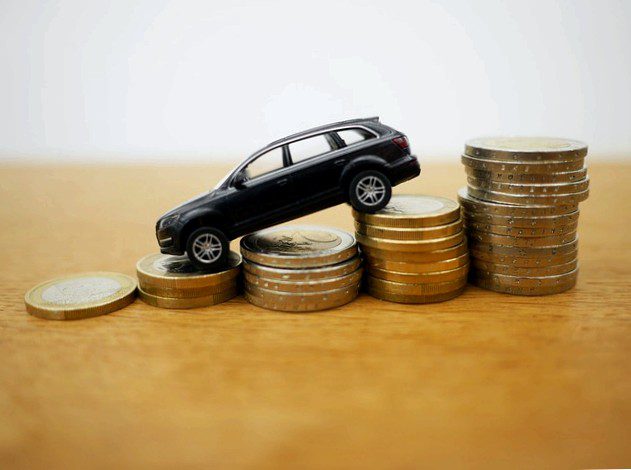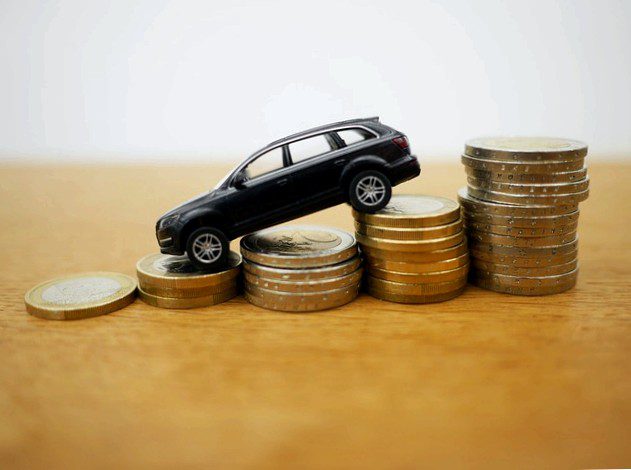
Despite the Corona pandemic and lockdown, prices for used and new cars have increased. However, the interest rates for car loans are still low. And for many borrowers, it pays to compare loans and obtain different offers in order to get the best possible deal. But many car buyers finance their vehicle through the car dealer's financing partner. This is not always the best and especially not always the cheapest solution. Because most car dealers only work with a certain or very few credit institutions. In most cases, loans are initiated by car dealers through the vehicle manufacturer's bank.
That is why car prices continue to rise
New car prices in particular have continued to rise over the past few months of the Corona crisis. And this despite the fact that just during the lockdowns mobility was significantly reduced. With regard to used cars, prices actually declined initially last year. But in the meantime, prices are also rising significantly here again. The car is still one of the most expensive purchases for many people. For many car buyers, a loan continues to be the best way to finance a new vehicle.
For some, a negative SCHUFA entry can cause a headache with regard to car financing. But if you meet certain requirements for car financing without a good SCHUFA, you don't have to worry about this either.
In 2020, millions of motorists purchased a new vehicle. Although fewer people bought a car than in the previous year, they spent significantly more money on it on average. On average, buyers paid 8.2 percent more for a new car than in the previous year. In the case of used cars, there was even a price increase of around 20 percent. In fact, it has been observed for several years that car prices are rising faster than consumers' incomes.
Improved standards cause prices to rise
The rapidly rising car prices are not least related to the rapidly advancing comfort and the ever-improving equipment of cars. Air conditioning is standard equipment these days. Not so many years ago, air conditioners were only installed in luxury models. Security standards are also increasingly adapted. The enormous price jumps for new cars mean that fewer and fewer drivers can afford or want to buy a new car. This in turn results in increased demand for used cars. And so sellers can set higher prices here, too.

Interest rates remain at a low
The rise in prices for new and used cars can leave car buyers feeling disillusioned. But fortunately, the high acquisition costs continue to meet a conceivably low interest rate level. In fact, car loans are once again a few percentage points cheaper than before the Corona crisis. They currently cost consumers only about half as much as eight years ago. But beware: Not every bank offers the best possible terms to every customer. How high the interest for the individual depends on various factors. Therefore a credit comparison is urgently advised.
Who compares, has the best chances of a favorable loan
If you let the car dealer know that you want to finance your vehicle with a loan, you will also receive a financing offer for the right car model. This is tempting for many customers. Saves time and effort to run from credit institution to credit institution to obtain and compare offers. And time is money after all – or not? In this case, the supposed time savings can cost you dearly.
Interest rates for car loans differ by up to around 80 percent on average.
Anyone who takes a look at these enormous interest rate differences quickly realizes that a loan comparison is worthwhile. And the more providers are compared with each other, the higher the probability of obtaining the best possible loan. Car dealers often make only one credit offer, if things go well, the buyer has the choice between two to three different offers. This is because most car dealers only work with a very manageable number of credit institutions – namely the banks of the car manufacturers whose models they sell. Car buyers should therefore not rely solely on the dealer's financing offer.
Car dealers also earn money on the loans
A further reason speaks for it not to rely alone on the car dealer in regard to a favorable credit offer. Because in many cases the dealers get a commission from the credit institution if they successfully refer new customers. The amount of the commission does not depend solely on the loan amount. The interest rate also plays a role. The banks do not give the car seller a specific interest rate, but leave him some leeway. So the temptation is great to quote the highest possible interest rates for customers.
And on the subject of saving time: the days when you had to contact individual credit institutions directly in order to compare loan conditions are over. In the meantime, a loan comparison can be made conveniently online from home via comparison portals.
Without SCHUFA entry for car financing
Comparing is important for a favorable car loan – but this should be done without SCHUFA entries if possible. Because anyone who applies for a loan automatically gets a SCHUFA entry. This can be circumvented by non-binding credit inquiries. A non-binding inquiry is not associated with a SCHUFA entry and therefore has no negative impact on the credit score.
And what if the credit score is already poor at the time of the credit application? A classic bank loan with reputable credit institutions is difficult to obtain in such a case. The alternatives are usually associated with higher interest rates and, above all, a high level of risk. Car buyers have to be careful that the purchase doesn't become a debt trap.
First, you need to make sure that your credit rating improves and that you can get a loan from a reputable provider. For example, it may be worthwhile to see if the bank can be given the prospect of certain collateral such as value credits or a surety bond.